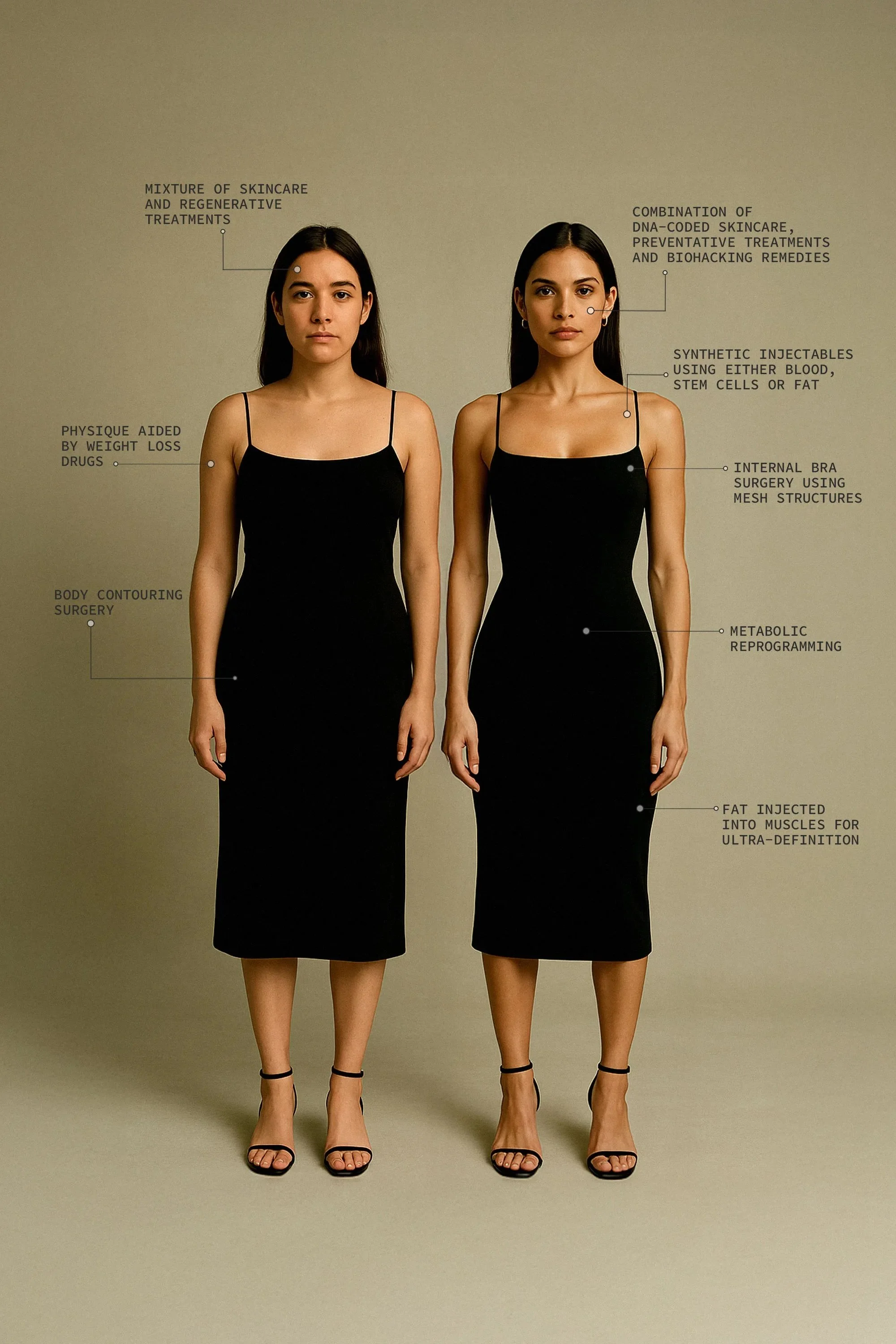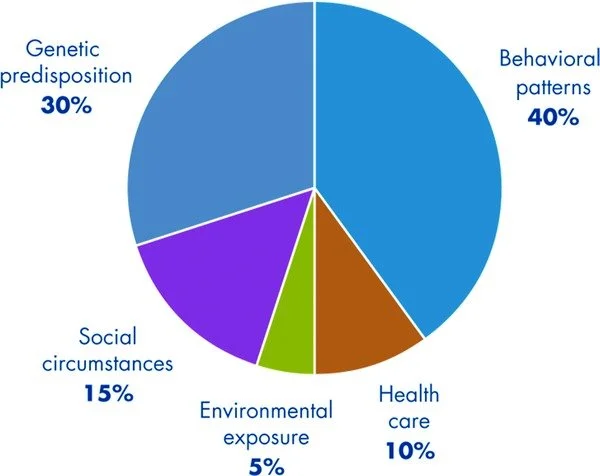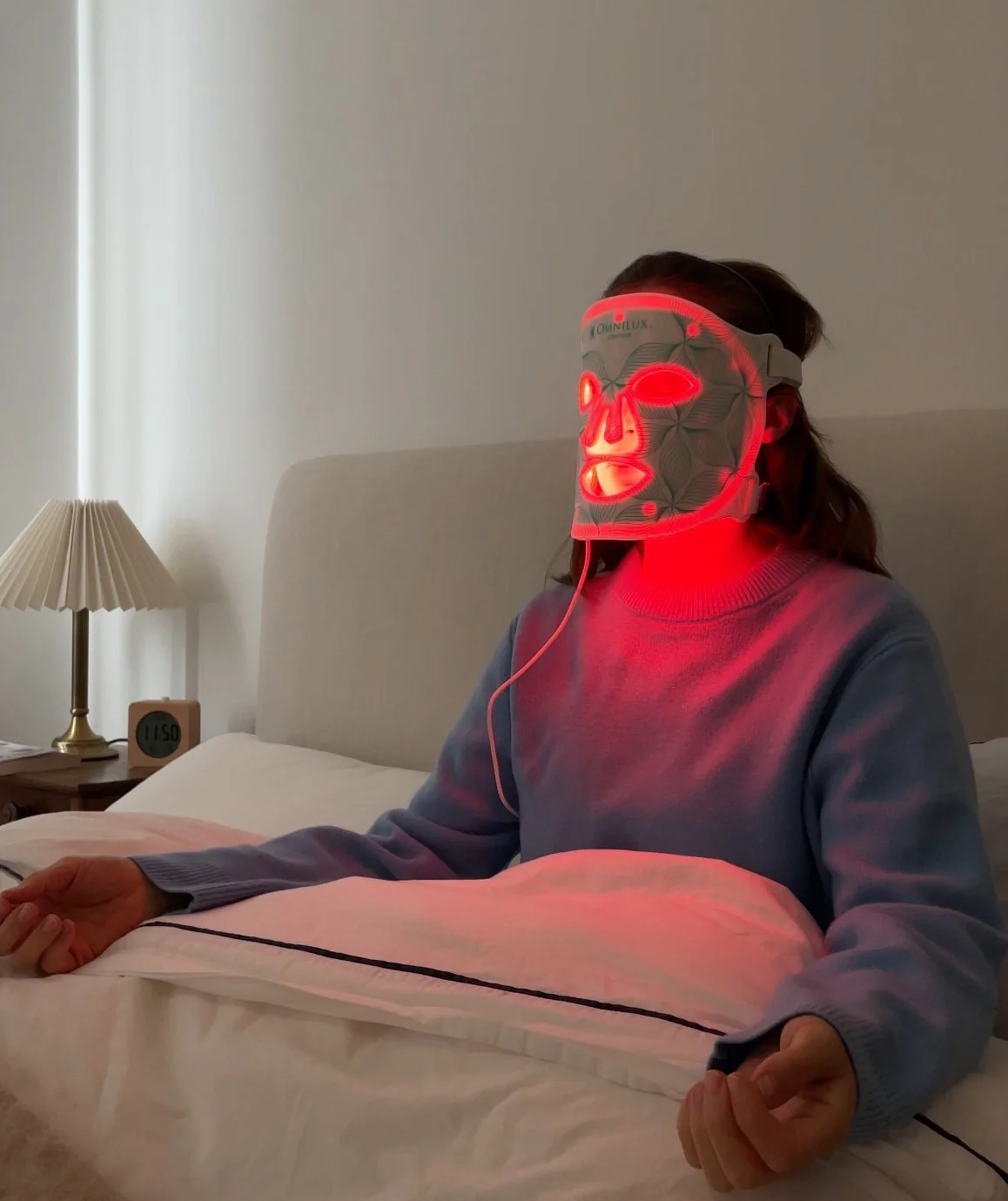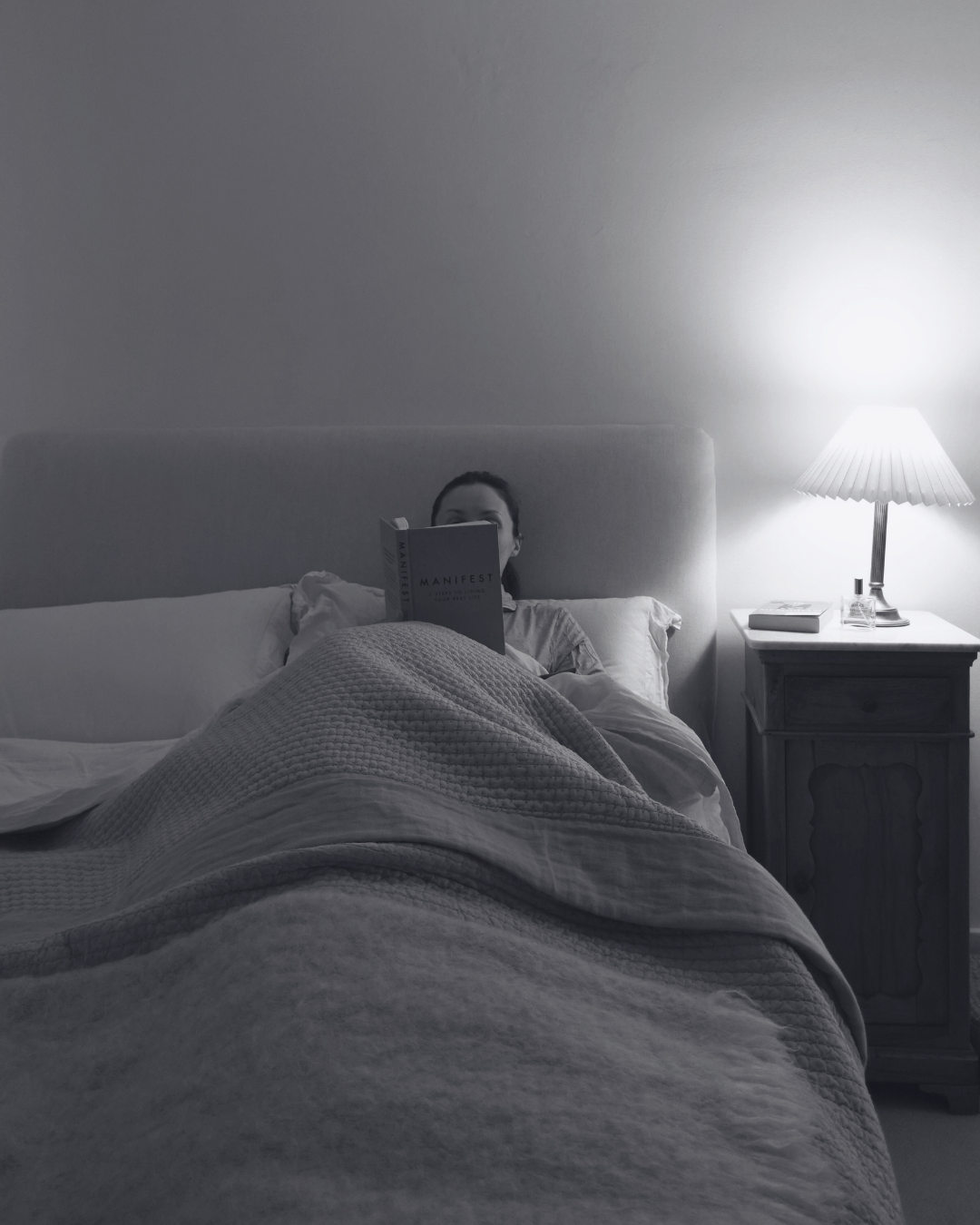Graceful #010 - Biohacking 101; Can You Hack Your Way to a Longer Life?
Google biohacking and you’ll see everything from sleep-tracking and meditation to the occasional story about pumping plasma into your veins — all in the name of fighting ageing. It can sound a little sci-fi, but at its heart, biohacking is really just people chasing a simple, very human goal: to feel, perform, and function at their absolute best.
Biohacking and so-called ‘longevity experts’ perhaps give these techniques a bad reputation; but it’s not all cyborgs and chip implants. At its core, biohacking is really about health optimisation. There can be crossover with the more extreme end of the spectrum, but the fundamental practices worth focusing on are far more basic (and not actually that innovative). It’s not about turbocharging yourself to perform at a superhuman level—it’s about restoring balance to the body and functioning as we should, naturally.
The more we learn about ageing and how it works in the human body, the more it seems we may be able to intervene in the process; or at least ease its negative effects until much later in life.
WHAT IS BIOHACKING
This image was created for Vogue Business, generated with ChatGPT for article ‘What will we look like in 20 years?
One well-known biohacker, NY Times bestselling author Dave Asprey, has made it his goal to live to 180. The oldest officially verified person was Jeanne Calment, a French woman who lived to be 122 and died in 1997. Is it really too much to imagine adding another 50-plus years to that?
Of course, there’s a difference between trying to ‘cure’ ageing and trying to avoid death altogether. I don’t think we can outsmart the Grim Reaper just yet, but in the meantime, what can we do about how we feel, how functional we are, and yes, how we look, between now and ‘The End’?
Many people would agree that living for thousands of years (or forever; “don’t die,” as Bryan Johnson likes to say) isn’t much use if you feel thousands of years old. We all know, or have heard of someone kept alive - but far from thriving - by modern medicine in their final years. Personally, that’s not how I want to age. I’d rather keep my wits about me, stay mobile and social, and ideally hold on to most of my teeth. I’d like a vibrant, active life, and then; when the time comes—a relatively quick exit, without decades of decline, pills, and persistent aches.
This is where the distinction between health span and life span matters. Health span is defined as the years spent in good health, free from chronic illness or pain; life span is really how long you live, regardless of condition. As more science emerges, it’s becoming more apparent that there’s no rule that we should spend our final decades, bedridden.
And, despite what I’ve always assumed; we aren’t destined to develop heart disease, diabetes, or memory problems just because our grandparents or broader family did. In fact, anywhere from 20-30% of ageing is genetically predetermined, the other 70–80% comes down to how and where we live, with a large chunk of that being behaviours.
According to longevity doctors, it’s often the tiniest tweaks* that make the biggest difference. Here’s what the science says is worth your time.
*However unsexy the below recommendations may be, it’s becoming clearer to me, that it is these routine behaviours, not endless longevity fads like biometric testing or IV drips (although there can be a place for them) —that are proven to help us live well, for longer.
Get Walking (or strutting, if you prefer)
Yes, the NHS wants us clocking 150 minutes of moderate activity a week (plus 75 minutes of vigorous activity per week, as well as strength training at least a couple of days a week). But research shows even smaller bursts count. Fifteen minutes of gentle movement a day could add up to three extra years to your life expectancy. Even better? Just 20 minutes of heart-pumping activity a week may slash your risk of heart disease by 40%.
And that doesn’t mean signing up for marathons. One 2022 study found a brisk seven-minute walk did more for heart health than a leisurely 14-minute dawdle (impatient Londoners rejoice).
Even micro-movements matter: a few one-minute bursts of vigorous activity sprinkled into your day were linked with a 40% lower risk of dying from cancer. Proof that power-walking to catch the bus, or running late for school drop-off is actually productive.
Eat The Rainbow
I talk about food alot; but moving your diet toward more whole plant foods can cut your risk of cardiovascular disease, diabetes, and multiple cancers. The colourful rule applies here: the deeper the hue, the greater the benefit.
Dr Michael Greger, longevity expert and author of How Not to Age, is especially fond of dark leafy greens and berries. Just one serving of greens a day (around half a cup cooked) is linked with a 25% lower risk of overall mortality and slower cognitive decline (or the rate at which thinking, memory, and other mental functions deteriorate). Berries, are antioxidant powerhouses (another thing I like to go on about in regards to how we age), neutralising the free radicals that contribute to inflammation, chronic illness, and, yes—premature skin ageing.
Greens also have heart benefits thanks to natural nitrates, which the body transforms into nitric oxide, relaxing blood vessels and improving circulation. A 2024 review found that even a “moderate” daily intake of these greens reduced heart disease risk by 15% and death from it by nearly 50%.
In other words, rocket salad: dinner party-approved and life-extending.
Chill out for better sleep:
Quality shut-eye can add two to five years to your life expectancy. So what’s the sweet spot?
A bedroom kept between 15–19°C. That cooler temperature nudges you into restorative sleep, the phase when your brain clears out the day’s debris and your body (and skin) gets to work repairing, balancing hormones, and strengthening immunity. Interestingly, there is cause for concern as the global temperature rises; so too will our ability to have high quality sleep.
Too warm, and you’re more likely to toss and turn, missing out on many of the benefits you get in deep sleep (I made a post about the importance of this). If you can’t control the thermostat, cooling bedding (I love Rise and Fall), a strategically placed fan, or sleeping naked can all help.
Stay Connected
This one gets so little airtime, as it’s harder to monetise but post-pandemic; it’s so obvious. Turns out gossiping over coffee is basically a health intervention. Strong social connections boost your likelihood of survival by 50%. On the flip side, isolation is associated with a 29% higher chance of dying earlier.
Whether it’s meaningful chats with a friend, a bit of banter with colleagues, or even light exchanges with the barista, social interactions protect cognitive health, reduce stress, and bolster overall wellbeing. Bonus: people with strong social networks are also more likely to move, eat well, and sleep better. Longevity wrapped in a latte catch-up—science approves.
Other Longevity-Friendly Habits Worth Noting:
Don’t smoke. Obvious, but worth repeating. Smoking damages lung function, heart health, skin health, and oral health, and it increases the risk of cancer.
Drink less. Even “moderate” drinking carries risks, so less really is more here. Unfortunately women are more vulnerable than men to alcohol’s effects, even after drinking smaller amounts. Heavy drinking can lead to increased risk of health problems such as liver disease, brain damage, and even breast cancer.
Hydrate. One study of 11,000 adults found those who stayed properly hydrated developed fewer chronic illnesses and lived longer. Aim for 2L a day (sounds simple, but almost everyone I see in clinic admits to not meeting this consistently).
Think positive. Optimism has been linked to longer lifespans and better emotional health. In short: the glass-half-full crowd are literally living longer. Check lasts weeks issue on cortisol, for tips on how to be proactive here.
The Takeaway?
Living longer doesn’t require a monk-like existence or moving to a Blue Zone. A few more greens on your plate, brisker walks, better sleep, and good company are small changes that make a big difference.
From My Desk This Week:
One product I’m loving: I was recently recommended the Beauty of Joseon Balm Cleanser by a friend in New Zealand. I almost passed on it — I’m usually an oil-cleanser girl. I love the convenience of the pump dispenser at night, so I can finish my routine and jump into bed ASAP. But this balm has totally (and unexpectedly) won me over. The little spoon, the solid texture that melts in your hands — it feels unexpectedly luxurious for such a simple product.
It’s fragrance-free, fuss-free (but does the job, and effectively cuts through my SPF and makeup), and falls into the save, not splurge category which is always refreshing. But the ritual of taking that extra moment in the evening to melt it down and massage it in has become one of my favourite parts of my nighttime routine. A small upgrade in texture, but a big upgrade in experience — and another Korean gem that’s quickly become a staple.
What I’m reading/listening to: This week I listened to Grace Beverley’s chat with Dr Julie Smith. It’s a gem; a down-to-earth, practical chat about burnout, overwhelm, and how our brains sometimes conspire against us. They talked about how our brains respond when we spiral, why we fall into self-sabotage (hello procrastination and perfectionism), and simple tools we can use to pull ourselves back in the moment. I loved how grounded it felt — less “fix your life overnight” and more small, doable shifts that actually make sense in daily life.
In the media: Gwyneth Paltrow recently posted a photo on Instagram — and it caused an absolute commotion. Which is both refreshing and depressing in equal measure. Refreshing, because it’s lovely to see a high-profile woman showing her skin as it really is at 52 (equally loving Pamela Anderson; makeup free). Somewhat depressing, because the reaction shows just how rare (and radical!) that still feels. The contrast is stark: men are labelled ‘distinguished’ and ‘sexy’ as they grey, while women are rushing for facelifts earlier than ever in a bid to stay frozen at 35 (global take-up of cosmetic procedures, from Botox to full facelifts, rose by 42.5 per cent last year). How unjust is that? Whatever you think of Gwyneth’s approach (and I don’t always align with them), this moment feels important: showing up as we are shouldn’t be radical — it should just be, normal?
Small shift to try this week: I’ve noticed I’ve slipped back into some old habits lately — my phone is charging by the bed again, after I had moved it further away last year. The moment I climb in, I automatically start doom-scrolling instead of reading. Not for long, but it steals those precious minutes I used to spend unwinding with a book, and cascades into ultimately, poorer sleep. This week, I’m reclaiming that time with a 45-minute screen-free window before bed. I’m jumping into bed with a book in hand, reading with my little red light clipped on, and my phone quietly charging just outside the bedroom door. It’s a small shift, but already it’s telling my brain, it’s time to relax now, and my sleep scores have improved. Highly recommend.
As always, I hope this helps us all navigate some popularised topics around ageing with intention and ease. I’d love to hear your questions or any topics you’d like me to break down in future newsletters, just reply to this email.
With grace,
Charlie x
PS: Please forward this email on to anyone you think might find it insightful. They can sign up here, and read past issues here.



